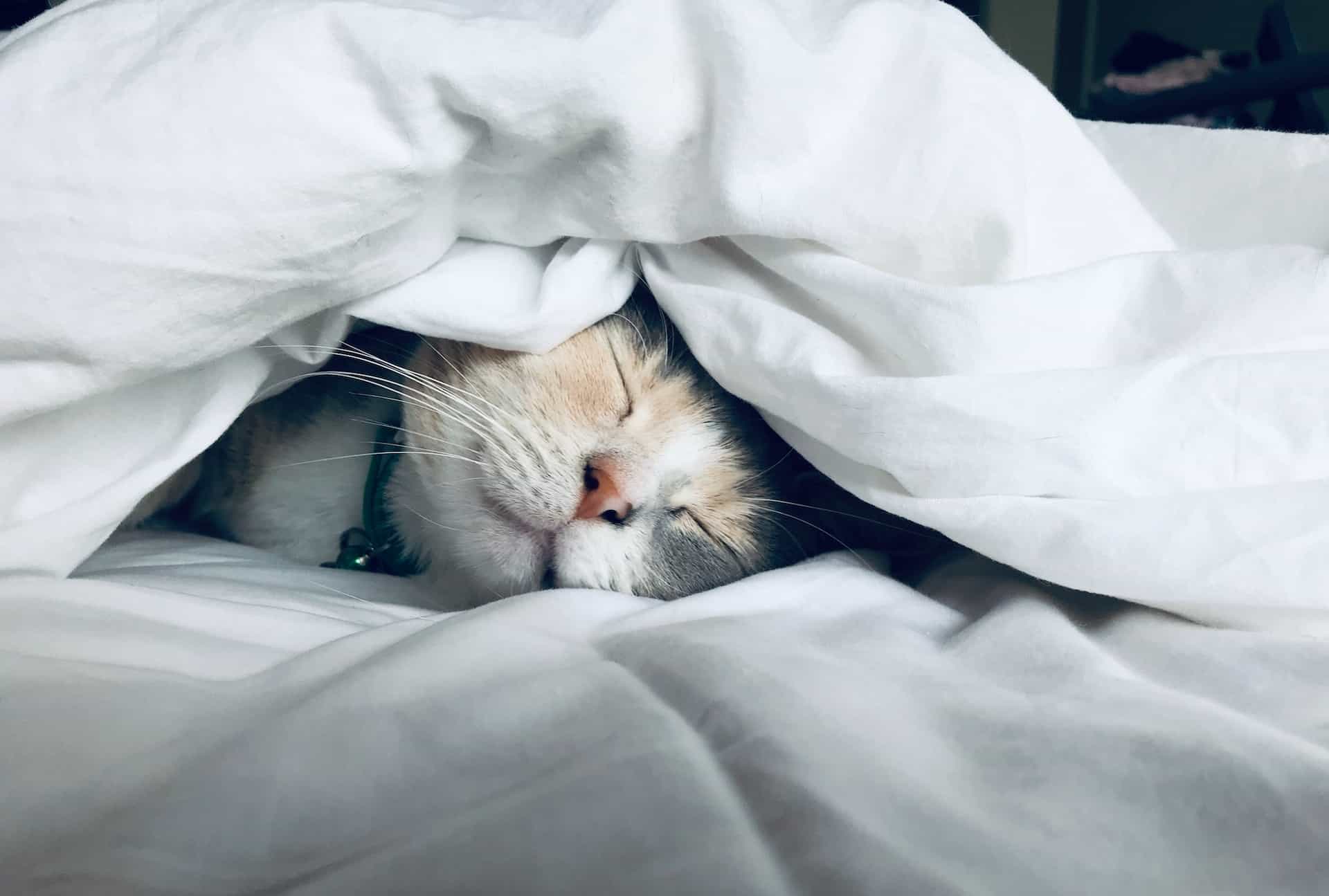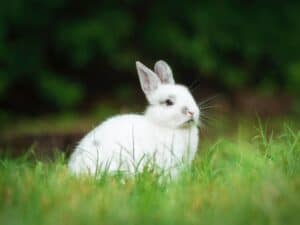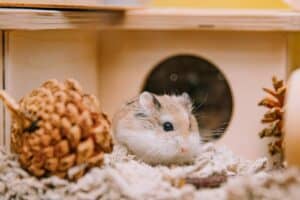| TL;DR: Adult cats sleep an average of 12 to 16 hours daily due to their polyphasic sleep pattern. Instead of long stretches of sleep, cats engage in multiple shorter sleep periods throughout the day. Their wild roots and natural hunting instincts strongly influence their sleeping habits, as do their need to conserve energy and crepuscular (active at night) sleep rhythm. Cats can also oversleep in certain circumstances. Boredom, stress, or illness can lead to excessive sleeping to cope with their discomfort. |
If you are a proud cat parent, you may have observed that your kitty spends a significant portion of their day in blissful slumber. While their sleep behaviors might appear peculiar compared to ours, it’s normal for cats to indulge in extended rest periods.
But exactly how much do they sleep, and why so much? There is much more to it than just plain sleeping. This article will explore the ins and outs of feline sleep patterns and their main reasons.
So, let’s roll up our sleeves and delve into the privileged world of catnapping!
Cat Sleeping Patterns
Cats are real sleep experts. Adult cats typically sleep for about 12 to 16 hours a day. The number jumps to 20 hours for senior cats and 22 for newborn kittens. Newborns spend less than 10% of their day awake, primarily feeding.
However, cats have a different approach, unlike humans, who follow a monophasic sleep cycle. With their polyphasic sleep pattern, they engage in shorter bursts of sleep, lasting between one and two hours, multiple times throughout the day. Surprisingly, these intermittent slumbers make up approximately two-thirds of a kitty’s life.
Like humans and most living things, cats are governed by a circadian rhythm, an internal biological clock that regulates the sleep-wake cycle. While humans follow a daily sleep cycle, staying awake during daylight hours and sleeping at night, cats are crepuscular. They find their prime moments of activity during dawn and dusk.
Interestingly, house cats’ sleep patterns are influenced by more than just their circadian rhythm. These domesticated felines can adjust their routines to match their human family’s lifestyle. Whether it’s dozing off when nobody’s home or snuggling up next to you at night, they effortlessly adjust their sleeping hours to align with yours.
But it is not just about sleep, though. Cats also become more active when you are at home and awake, seeking your attention and affection. And they have a natural talent for timing their naptimes to coincide with meal schedules.
Why Do Cats Sleep So Much?
The amount of sleep cats need varies from one pet to another. Age influences their sleep patterns and other factors like breed, diet and lifestyle. However, there’s no denying that cats, in general, are sleep enthusiasts.
So, what prompts them to spend so much time on it?
Let’s take a look at eight common reasons.
Reason 1: The active lifestyle of small hunters
Cats’ activities are highly energy-consuming, whether in the wild or at home. As skilled ambush predators, they rely on bursts of energy for stalking, pouncing and capturing their prey, even if it’s just their favorite toy mouse.
Besides, their feeding habits and polyphasic sleep patterns are closely intertwined. As small hunters, cats target smaller prey, requiring multiple feeding occasions and more frequent hunts than larger predators.
Searching for food alone can consume up to 50% of a feral cat’s time. So, when not engaged in their daily activities, cats instinctively rest and sleep to recharge and conserve energy; they know they will need it later.
Reason 2: Crepuscular sleep rhythm
One familiar sight is a cat peacefully dozing in a sunlit spot during the late morning. This daytime sleepiness is the counterpart of their crepuscular behavior. Cats are most active and playful during early mornings and evenings, often leading to startled cat parents waking up at 5 AM to their kitty’s mischievous antics at odd hours.
This behavior is normal and deeply ingrained in their ancestral instincts and adaptation. Cats have developed exceptional eyesight to thrive in low-light conditions, enabling them to hunt when competitors for prey are scarce — daybreak and dusk. This adaptation grants them the advantage of two distinct hunting periods instead of just one.
Even though domesticated cats no longer need to hunt for their meals, their genetic patterns still influence their behavior and more often than, we will find them dozing off during the day.
Reason 3: The weather
As odd — or relatable — it may seem, the weather also affects cats’ sleeping patterns. In hot temperatures, they instinctively know that venturing outside would require excessive energy and lead to unnecessary fatigue.
As a result, cats choose to spend the hottest hours of the day in deep slumber, reserving their energy for more relaxed moments. This behavior is just one of the many ways they regulate their body temperature.
The same principle applies to winter or rainy days. During unfavorable weather conditions, cat naps become more frequent and prolonged. Once again, instinct serves as a trusty guide: wet or cold weather reduces the chances of a successful hunt. Therefore, on those gloomy days, cats will likely extend their already impressive sleeping record by adding more hours of rest.
Reason 4: Deep sleep and catnapping
It’s a common misconception that kitties spend most of their sleep in deep slumber. In fact, about three-quarters of a cat’s sleep time is catnapping — a state of light sleep. During this time, they remain aware of their surroundings, ready to react swiftly to any sudden movement or sound.
Signs of this light sleep state include slightly open eyes, occasional tail movements and ears that twitch and rotate toward sounds.
Also, just like humans, cats can enter rapid eye movement (REM) during deep sleep. REM periods typically last around six minutes before transitioning back into light dozing. This alternating pattern continues throughout their sleep cycle, allowing cats to rest while remaining vigilant.
| ???? Fun Fact: Like humans, cats are most likely to dream in the REM sleep stage. During these short cycles, kitties twitch and chatter while navigating their dreamland. Their muscles relax as they enter this state, likely preventing them from acting out their dreams. |
Reason 5: Oversleeping
While cats enjoy their well-deserved rest and basking in the warmth of a sunny spot on the couch, there is such a thing as too much sleep when it comes to our feline companions. Excessive sleep can be a coping mechanism for cats when they are not feeling well; various factors can trigger it.
Reason 6: Boredom
Like humans, cats can be affected by boredom or depression, leading them to doze off for extended periods, sleeping their time away. However, we can address this by keeping their minds active and stimulated, providing them with interactive toys, engaging play sessions, and enriching activities.
Reason 7: Stress
Cats facing overwhelming or anxious situations may alter their sleep patterns to cope. If you notice a sudden increase in your cat’s sleep habits, it could indicate that they’re feeling stressed about something in their environment. Changes in household dynamics, the introduction of new family members, or alterations in feeding times can all contribute to feline stress.
Reason 8: Sickness or discomfort
Cats are masters at hiding signs of illness or distress, often concealing them until the condition has progressed significantly. A sudden increase in sleep time may be their way of coping and supporting their body’s healing process.
Suppose you notice significant changes in your cat’s sleep patterns, particularly if they’re accompanied by other signs of illness, such as a lack of appetite and lethargy. In that case, scheduling a visit to the vet for a comprehensive evaluation is essential.
Final Thoughts
Cats are remarkable, brilliant and in tune with their body’s needs. While sleep plays a crucial role in their well-being, it’s equally important to incorporate play and exercise into their waking hours. Engaging in lively play sessions, particularly in the evening when their hunting instincts come alive, provides them with the stimulation they need for a balanced lifestyle.
Every cat is unique, with individual preferences and requirements. Observing and understanding their specific patterns and needs is essential for their health and happiness. If you have questions or concerns about your cat’s sleep patterns, consulting your trusted vet will provide valuable guidance and support. And above all, enjoy those cuddling moments with your purring buddy!
| SOURCES Campbell, S. S. & Toblew, I. (1984) Animal Sleep: A Review of Sleep Duration Across Phylogeny. proberlab.caltech.edu Piccione, G., et al. (2013). Daily rhythm of total activity pattern in domestic cats (Felis silvestris catus) maintained in two different housing conditions. sciencedirect.com Intelligent Cat Care. (2021). The evidence for frequent feeding of cats to promote positive welfare. icatcare.org Shoen, S. (2022). How Many Hours Do Cats Sleep? sleepfoundation.org Jouvetm M. (1965). Behavioural And EEG Effects Of Paradoxical Sleep Deprivation In The Cat. sommeil.univ-lyon1.fr O’Brien, C. (2018). What Do Cats Dream About? hillspet.com The Cat Hospital. (2023). Subtle Signs of Sickness. hospital4cats.com |





